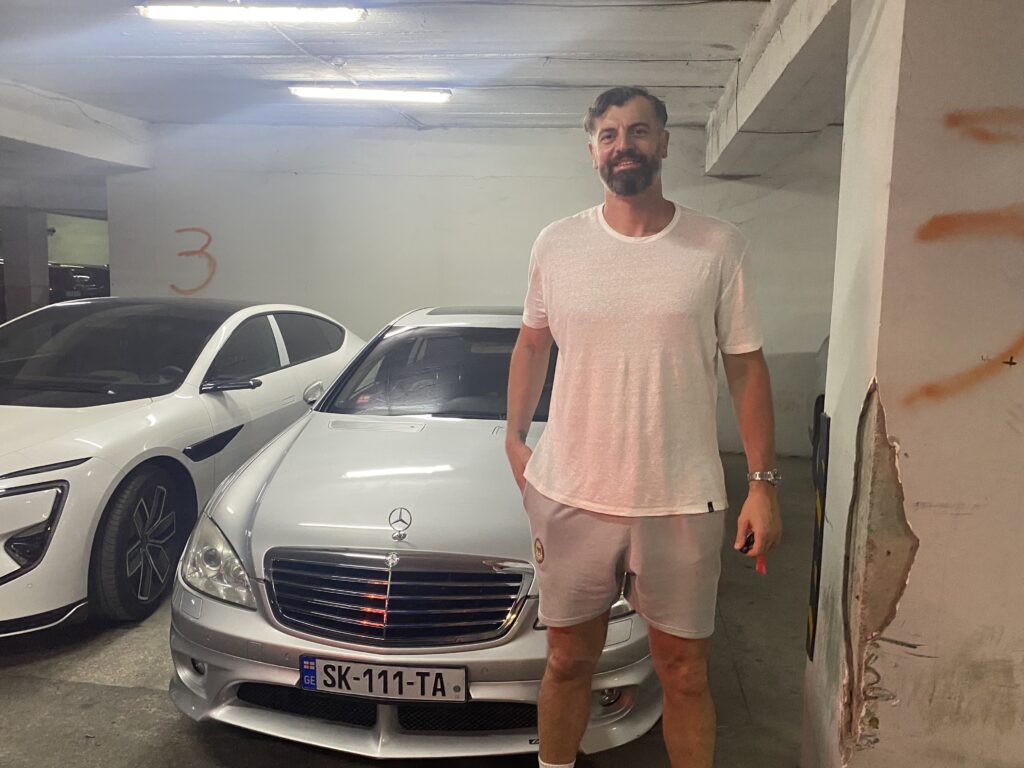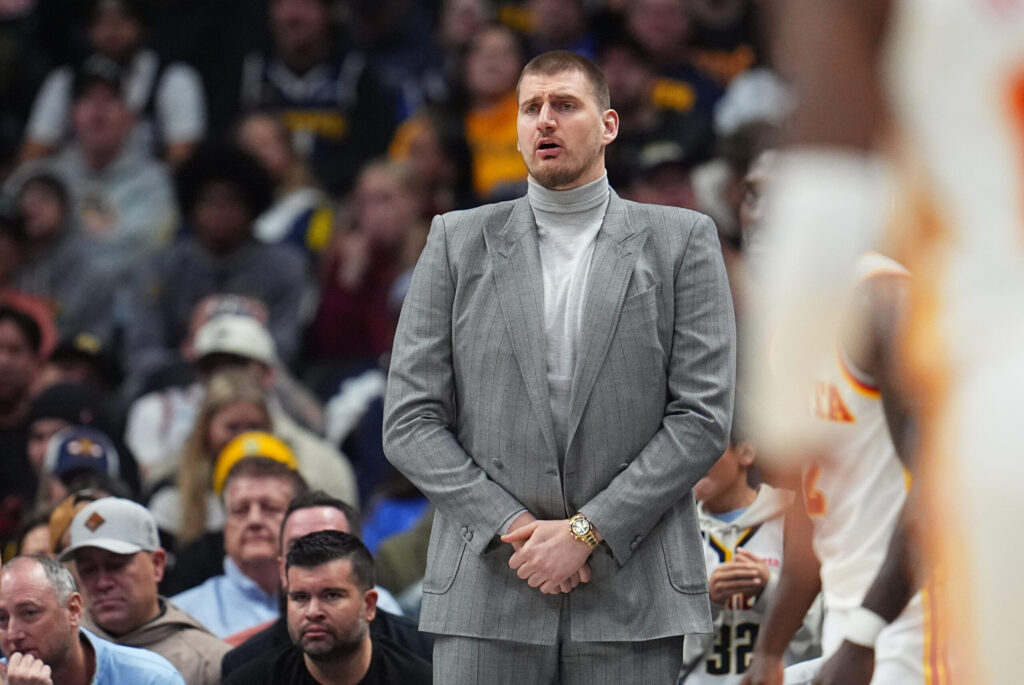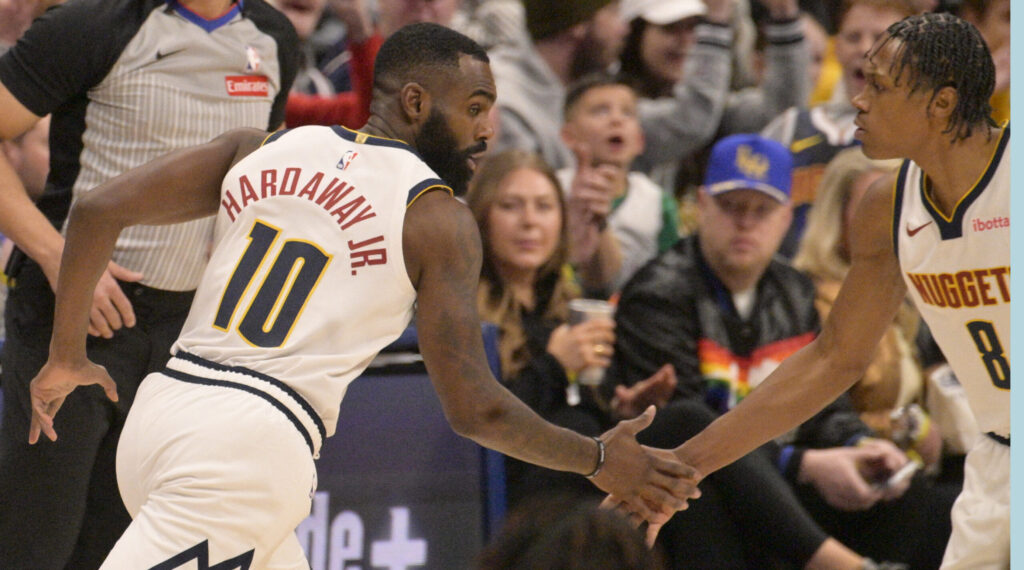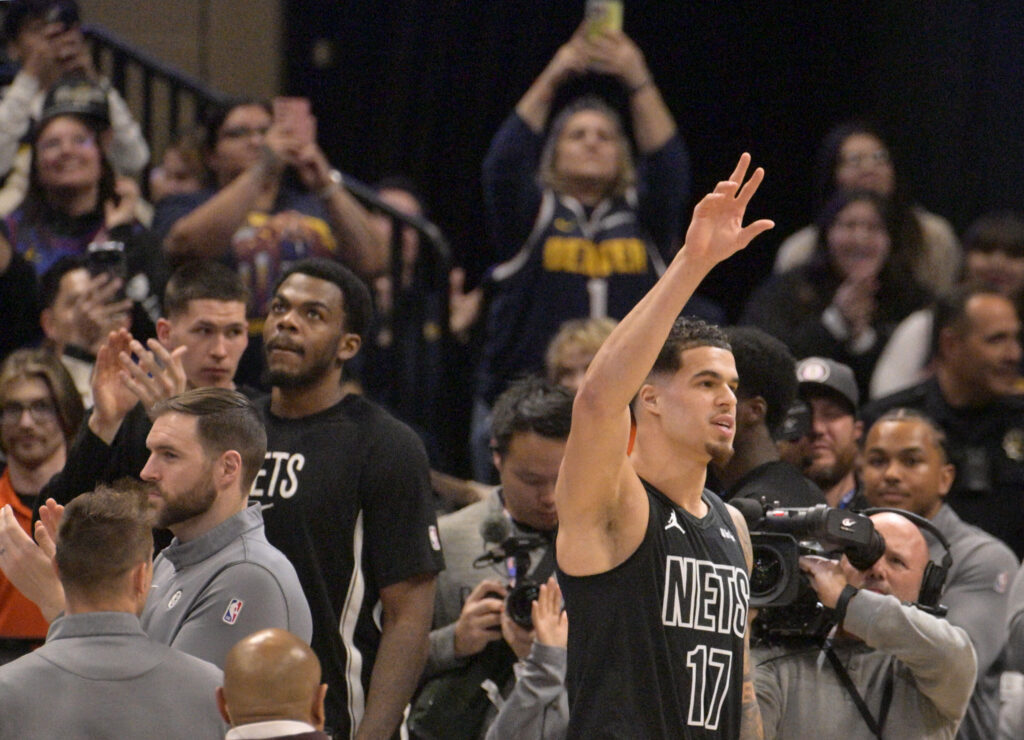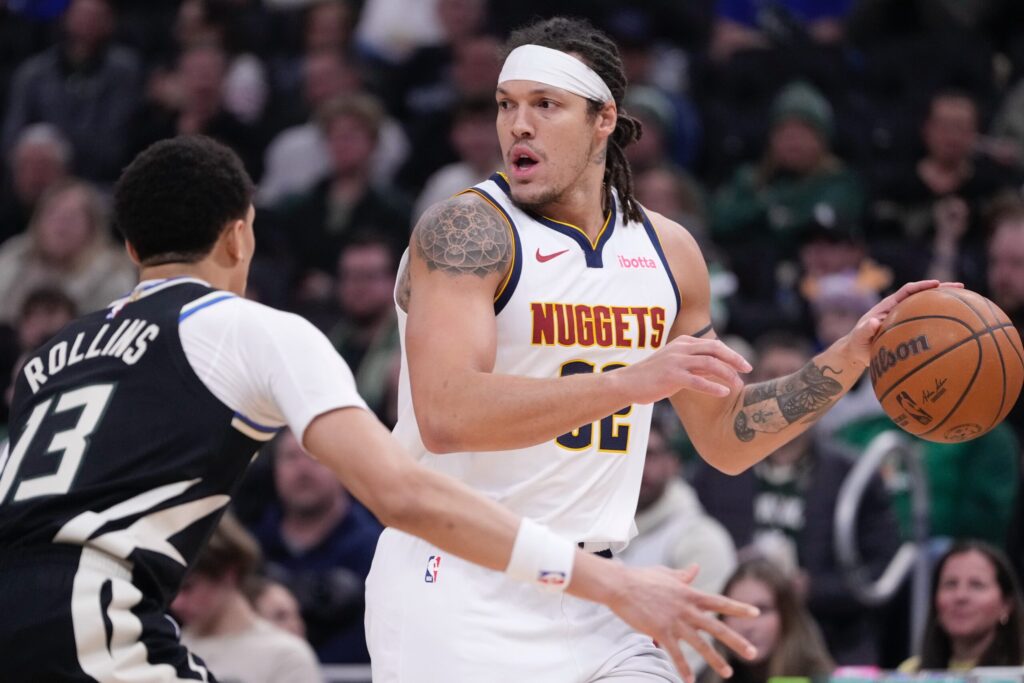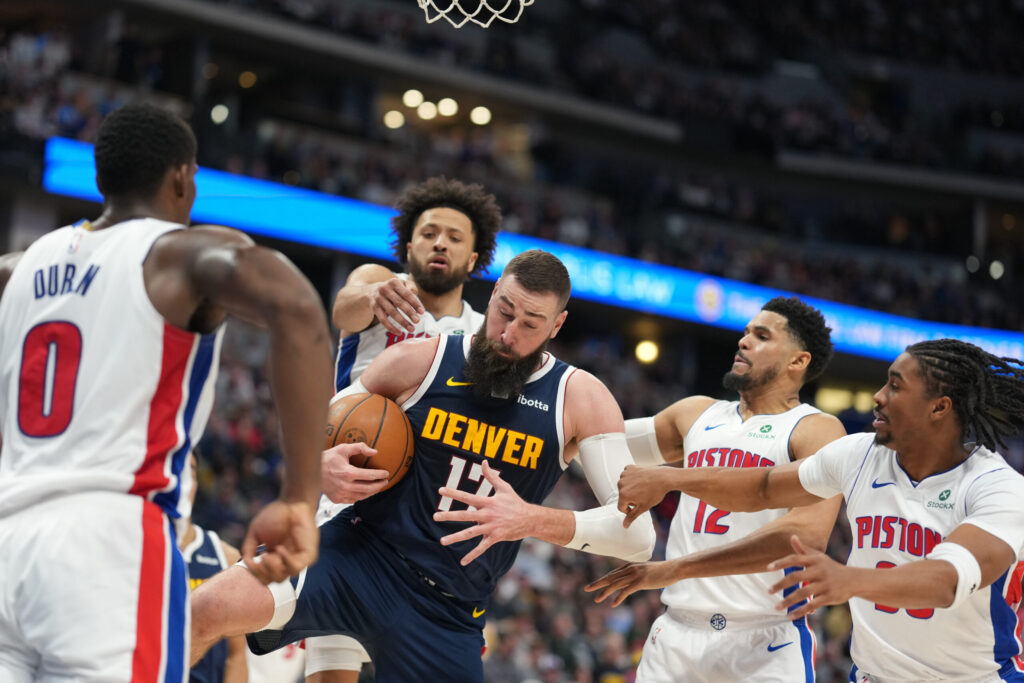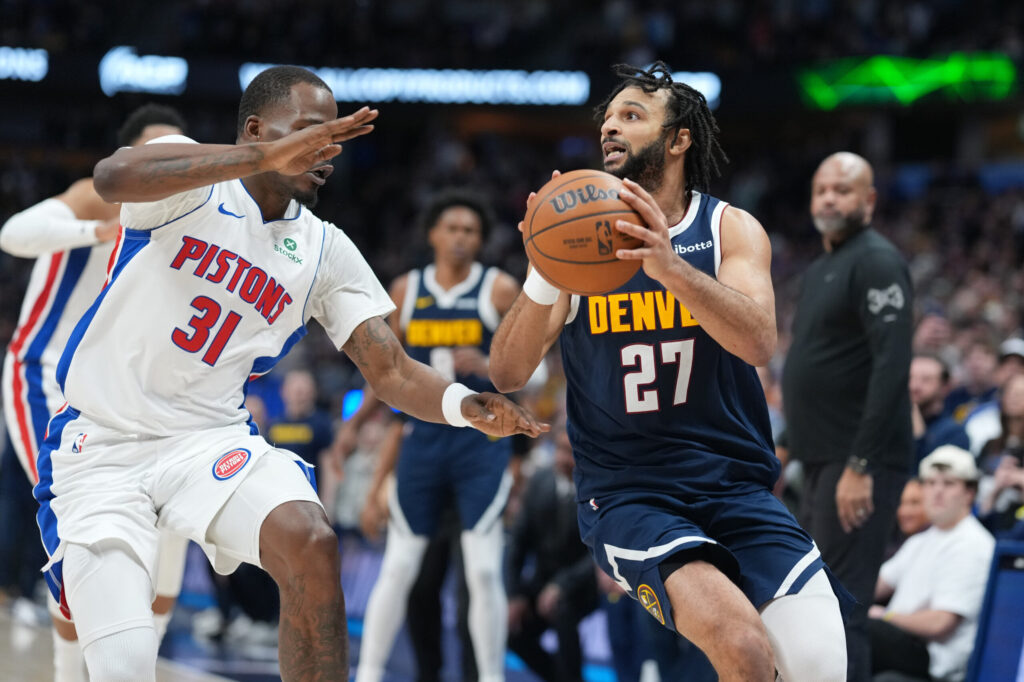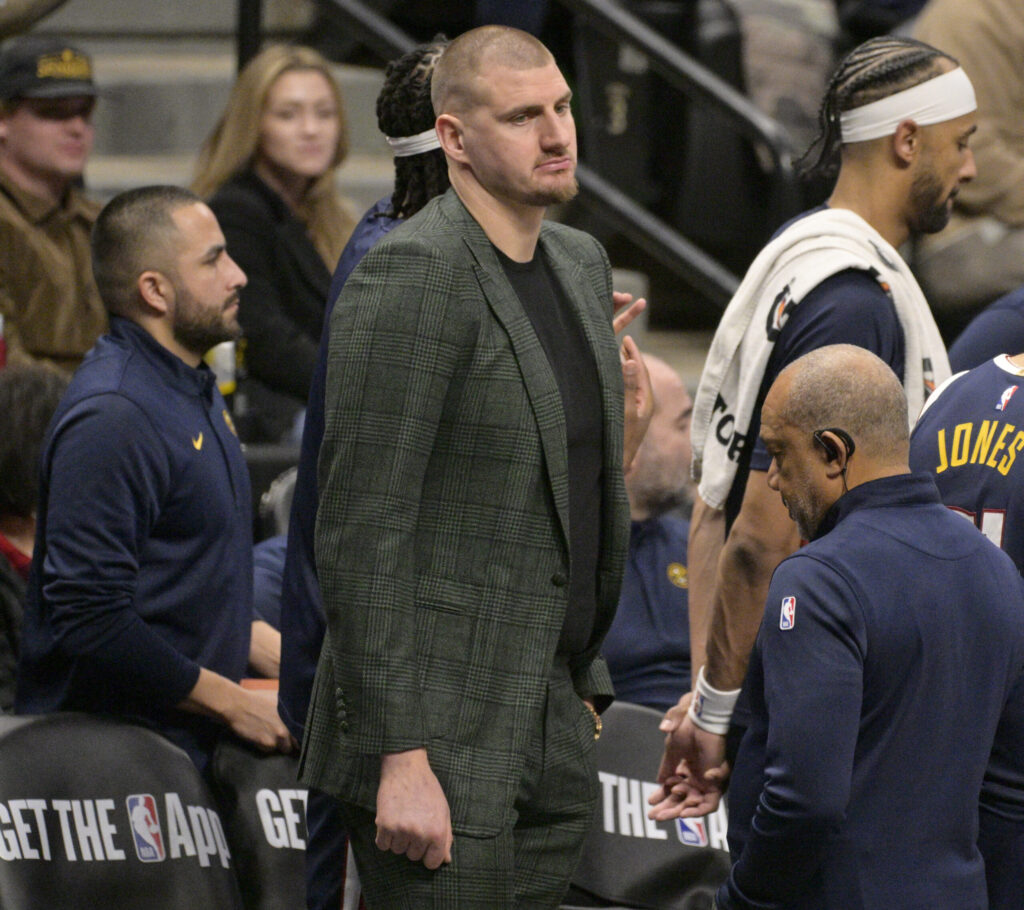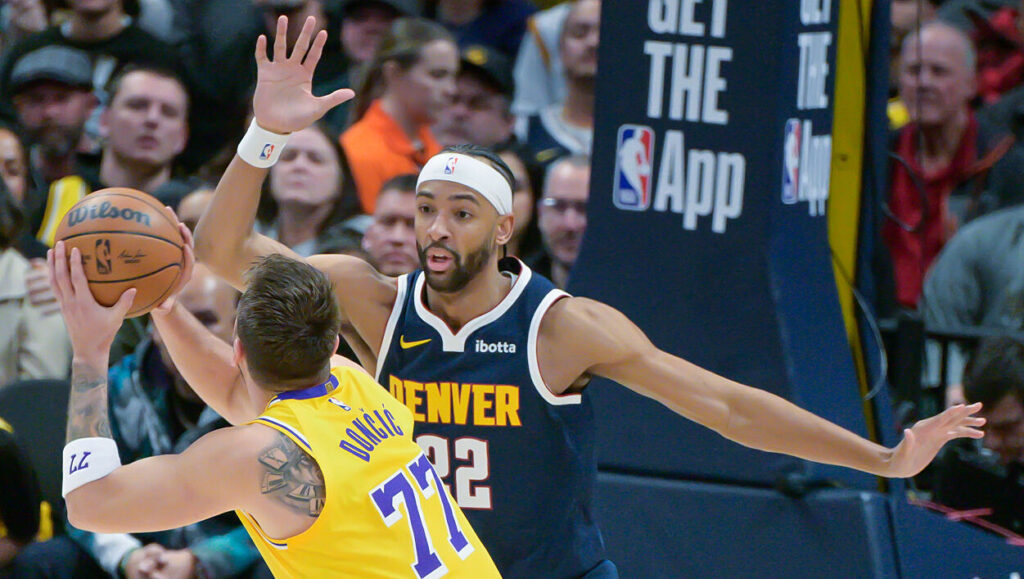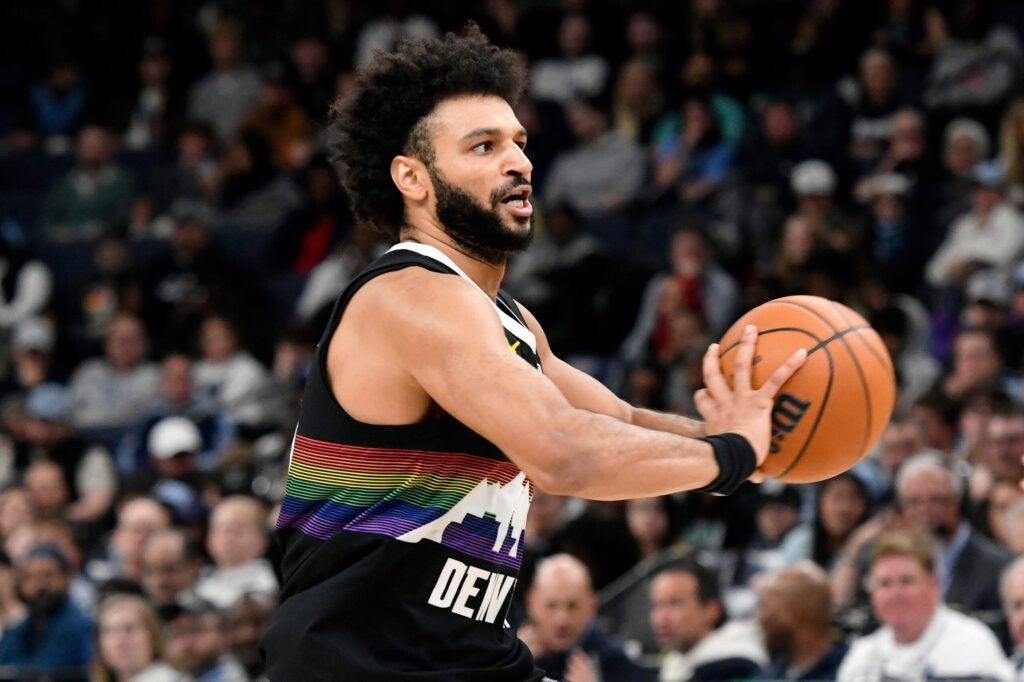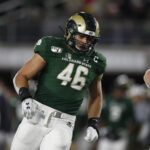Two decades after difficult Nuggets stint, Nikoloz Tskitishvili is 42 and still playing in native Georgia
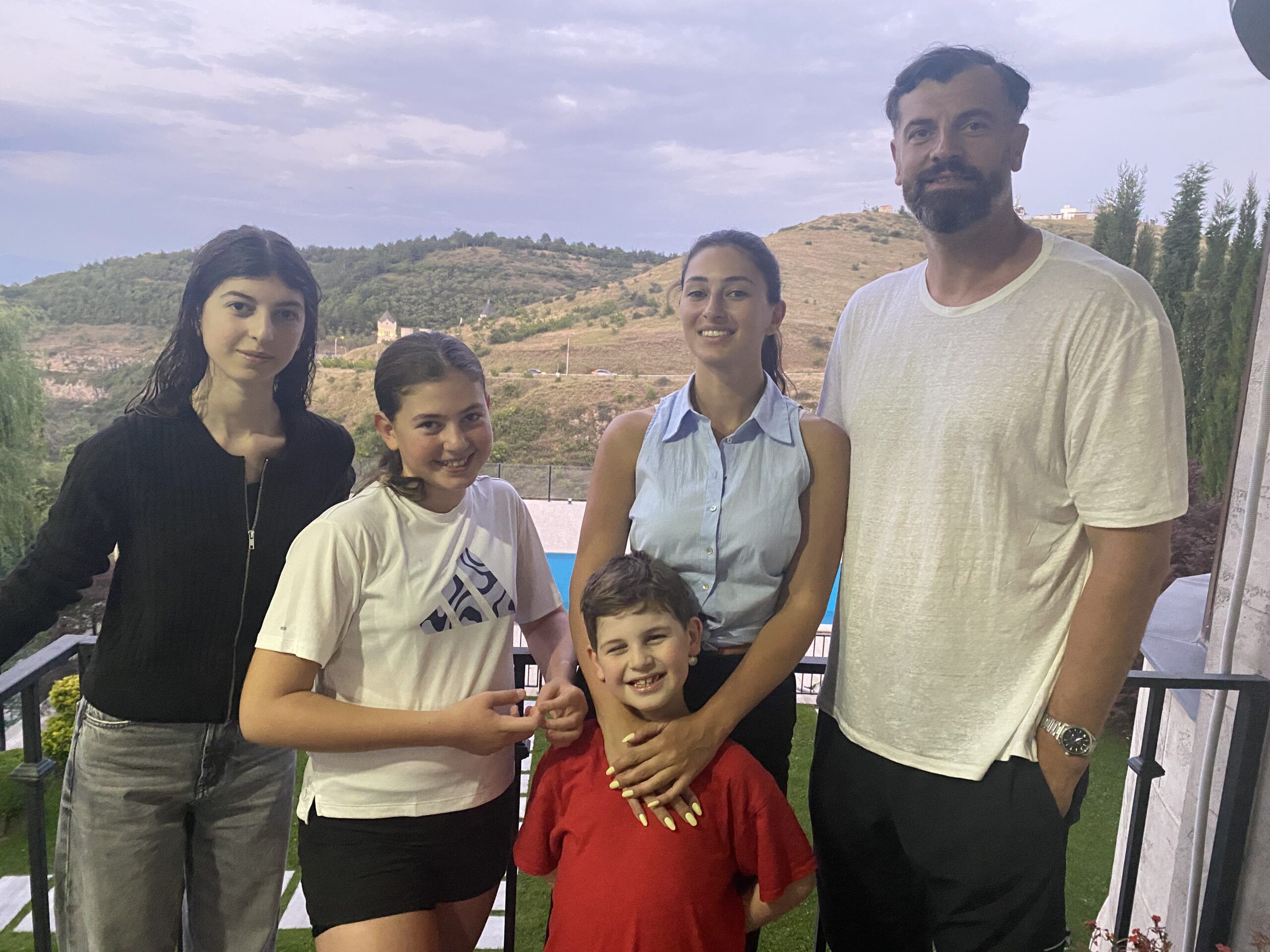
TBILISI, Georgia — When Nikoloz Tskitishvili tools around Tbilisi in his 2018 Ford Raptor, everyone seems to know who he is. Those in doubt can check out his license plate.
Yes, they do have vanity plates in the Republic of Georgia.
The one on Tskitishvili’s truck reads “TS-222-KI.” The letters are for his name and the numbers designate his jersey number 22 he has worn for many years playing basketball. He had to add an extra 2 since three digits are required in Georgia’s license plate format.
When Tskitishvili recently pulled into a parking garage in the Georgia capital, he was immediately recognized by several of the attendants, who wanted to talk to him. They insisted he didn’t have to pay the parking fee since, after all, he is a basketball hero in the country.
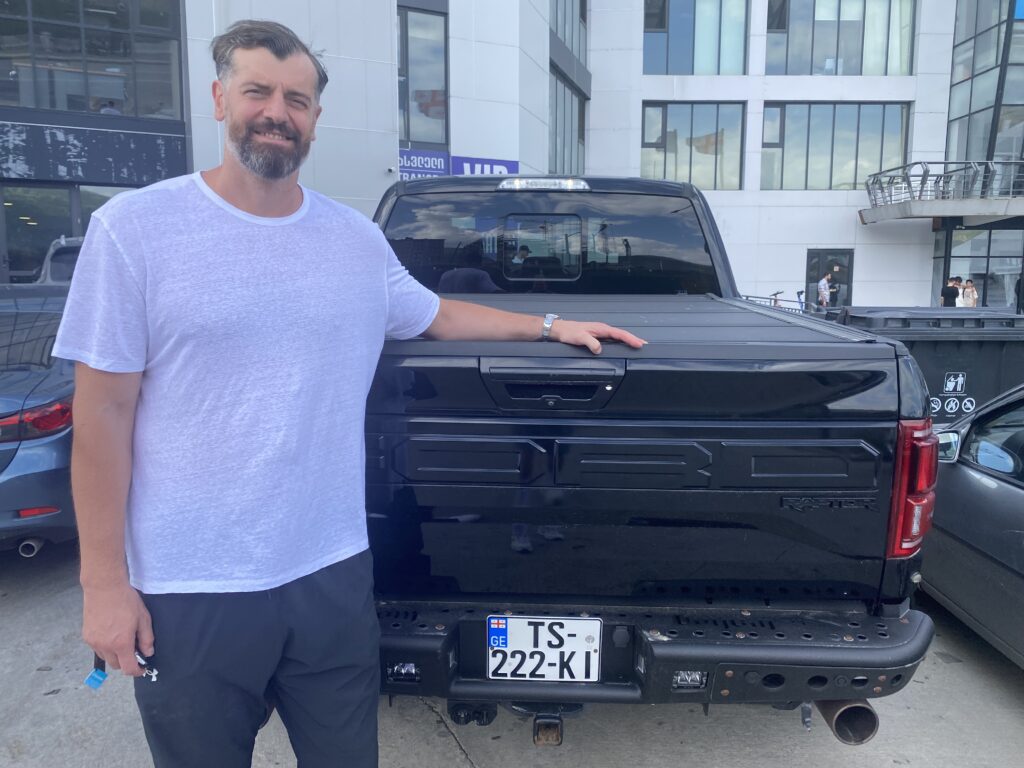
Tskitishvili, born in Tbilisi in 1983 when it was part of the Soviet Union and eight years before Georgia became independent, wore No. 22 for the Denver Nuggets from 2002-05. It didn’t go well.
Tskitishvili was taken with the No. 5 pick in the 2002 NBA draft, being selected at age 19 largely because of his potential. But the 7-foot forward averaged just 3.2 points in 2.5 seasons with the Nuggets and 2.9 points in a four-year NBA career, resulting in him being dubbed one of the biggest draft busts ever.
But Tskitishvili’s basketball career was far from over after he played his final NBA game in 2006. He went on to play professionally in various leagues around the world through 2019. And he had a brief stint back in the United States in 2022 for the Power in the Big 3, a three-on-three league featuring ex-pros.
If you add it up, Tskitishvili played for a staggering 25 teams in 12 countries.
“I might hold the record for playing for so many teams,’’ he said. “I might go into the Guinness Book of World Records.”
Although it’s not for money, Tskitishvili is still playing basketball at age 42. Last summer, he suited up in the World Maxibasketball Championship in Lugano, Switzerland, in the over-40 division and Georgia finished fifth. He also plays in a masters league in Tbilisi.
“I’m going to play until my wheels come off,’’ said Tskitishvili, who lives in Tbilisi with his wife Sofi, 31, daughters Elizabeth, 14 and Eleni, 12, and son Michael, 7. “I love playing basketball. When it’s something you’ve been doing for 20-plus years, you just can’t stop.”
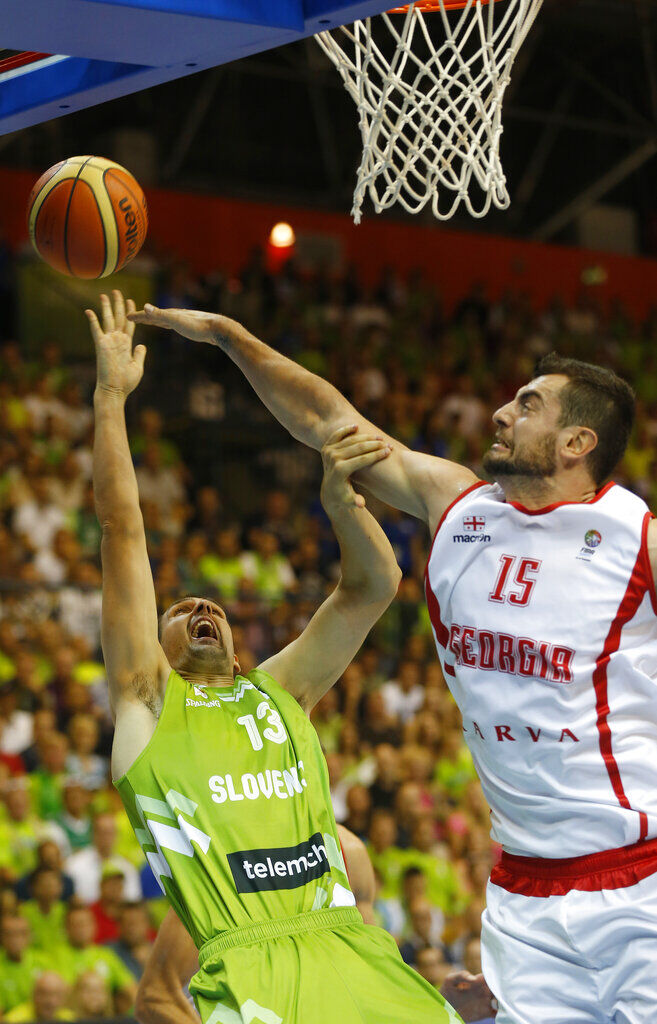
Tskitishvili has averaged between 25 and 28 points since turning 40 and now weighs 285 pounds, 60 more than his listed NBA weight. And when he’s not still playing basketball, he’s working to improve the game in Georgia.
Tskitishvili is in his third year as vice president of the Georgian Basketball Federation. Among his many duties is conducting clinics for kids around the country, which has a population of 3.6 million and is roughly the size of West Virginia.
“When (Tskitishvili) meets with the kids, they are unbelievably happy,’ said Shlva Oininei, head of federation’s regional department. “You can see it in their eyes because he is one of the legends in Georgia. He was one of the first guys to get to the NBA from our country and it was our dream.”
Tskitishvili was the second native of Georgia to make the NBA, following center Jake Tsakalidis, taken by Phoenix with the No. 25 pick in the first round of the 2000 draft. But Tsakalidis actually was raised more in Greece.
Tskitishvili grew up playing for local teams in Tbilisi before moving on to KD Slovan in Slovenia from 1999-2001 and then joining Benetton Treviso in Italy from January to June in 2002. Playing for Mike D’Antoni, who was the Nuggets’ coach in 1998-99 and later had NBA head stints with Phoenix, New York Knicks, the Los Angeles Lakers and Houston, Tskitishvili averaged a modest 6.6 points while seeing limited playing time in 13 games.
But this was a time when forward Dirk Nowitzki, a native of Germany, was having great success after joining Dallas as a 20-year-old in 1998, and forward Pau Gasol, a native of Spain, was coming off being named Rookie of the Year for Memphis. Although Tskitishvili didn’t play much in Italy due to D’Antoni preferring to use veterans, scouts were intrigued by his height, shooting ability and overall potential and figured he could be the next European star.
“I didn’t know anything about the (NBA) draft,’’ Tskitishvili said about his thinking in early 2002. “Then Marc Fleisher (Tskitishvili’s agent) is telling me I could be a top-10 pick. … And then people were writing articles on me that I could be like Nowitzki or Gasol and I’m just an 18-year-old kid. … I knew I was a very good, talented guy but I never talked about myself like I’m the best.”
Tskitishvili had turned 19 when Denver selected him with the No. 5 pick on June 26, 2002. The Nuggets, then under second-year general manager Kiki VanDeWeghe, had dispatched a number of veterans to carve out salary-cap room for 2003. Denver also on the night of that draft acquired Brazil big man Nene (then known as Nene Hilario) in a trade with the Knicks after he was taken with the No. 7 pick.
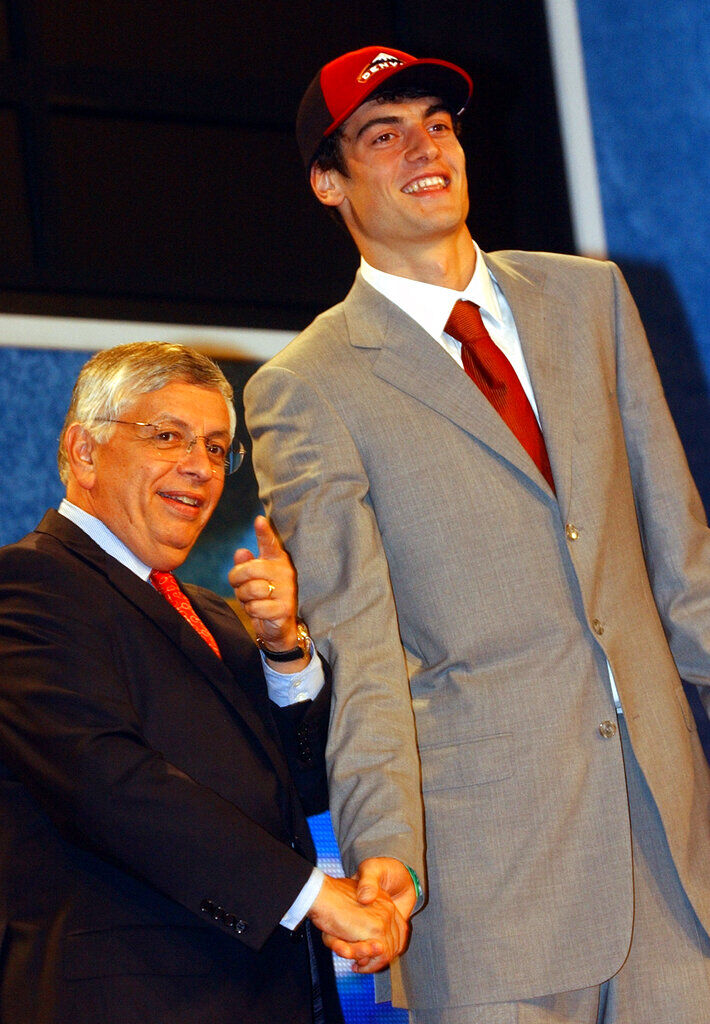
With the Nuggets using mostly young players, Tskitishvili, known as “Skita” to tongue-tied Americans, had some OK moments as a rookie while averaging 3.9 points and 16.3 minutes. He had games of 17 and 15 points, but his scoring in both mostly came in garbage time of lopsided losses.
The Nuggets went 17-65 in 2002-03 under first-year coach Jeff Bzdelik to tie Cleveland for the worst record in the NBA and for the most ping-pong balls in the draft lottery. The Cavaliers won the lottery and the right to draft forward LeBron James No. 1, but the Nuggets ended up getting forward Carmelo Anthony at No. 3 for a pretty good consolation prize.
By the next season, with Anthony starring and the Nuggets having signed coveted free-agent guard Andre Miller and some others, they made the playoffs with a 43-39 record. Tskitishvili’s time was cut drastically, and he averaged 2.7 points and 7.9 minutes while getting into just 39 games.
“My first year they gave me some chances and I had some decent games,’’ Tskitishvili said. “But in the second year, Jeff Bzdelik had to win. I remember he called me into his office and said, ‘Skita, if something happens, they will fire me and I really want this job. You are very young and you have to develop but if you don’t play, don’t get mad at me.’’’
Bzdelik agreed that was the scenario. He said Tskitishvili didn’t have the “skill set” when he was Denver’s coach to play significant minutes and that with his slender frame he was often overpowered.
“Skita was a terrific young man,’’ said Bzdelik, a Nuggets east coast scout when the 2002 draft was held, who two months later was named their head coach. “When the Nuggets drafted him fifth, I had nothing to do with the draft choices. When they drafted him fifth, it was really unfair to him because he wasn’t a fifth-player-picked kind of guy. Look at his (statistics) with Benetton. … When he was drafted, it put everyone in a very, very difficult spot because he wasn’t ready and he was drafted strictly on potential. … We were trying to win games, and he wasn’t ready for that moment.”
By 2004-05, the Nuggets had added free-agent forward Kenyon Martin and the roster was even deeper. Bzdelik was fired in December, Michael Cooper spent a month as interim coach and then George Karl was hired. While playing in just 23 of Denver’s first 54 games, Tskitishvili averaged a meager 1.5 points and 6.9 minutes.
By that time, Tskitishvili had gone public with a desire to be traded, and on Feb. 24, 2005, he got his wish. He was sent to Golden State with forward Rodney White for forward Eduardo Najera, guard Luis Flores and a 2007 first-round pick. While Najera turned out to be a solid addition, Flores ended up playing in just one more career NBA game and the Nuggets packaged him in another trade for what turned out to be the No. 30 pick in 2007, one that netted a player who never made the NBA in Petteri Koponen.
“I tend not to look back in that way,’’ VanDeWeghe said when asked if in hindsight it was a reach to select Tskitishvili with the No. 5 pick. “You try to take what you can and learn what you can and then to do better. … (It) may not be the career in the NBA that (Tskitishvili) potentially could have had. But all in all he had a pretty good long and pretty good career (outside the NBA).”
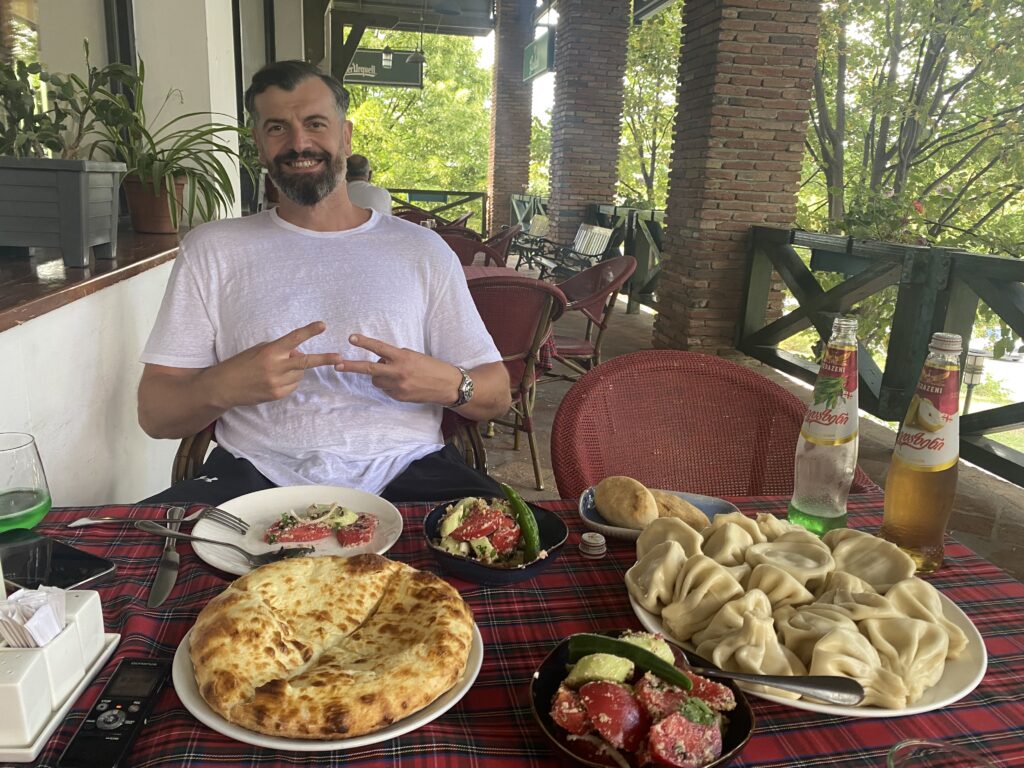
Looking back, Tskitishvili doesn’t point the finger at anyone on the Nuggets. He said he wants to give “Kiki my flowers” because he “changed my life” even though it didn’t work out in the NBA.
“I don’t call myself a bust because you were expecting a 19-year-old kid to come out there to dominate,’’ Tskitishvili said of the enormous expectations that surrounded him. “I blame myself in that I should have done better. But I didn’t have much knowledge back then. I didn’t know about hiring a coach to work with me extra hours in the gym or somebody to guide me off the court. … If you draft somebody No. 5 from Europe, you have to raise him like a child. It was like coming from a different planet.”
Tskitishvili initially signed a three-year, $9 million contract with the Nuggets. He said he could have spent his time more wisely rather than “maybe I’m at clubs all night” but said that didn’t have anything to do with drinking.
“I’m young and had millions in my hands,’’ he said. “And when I got angry and mad that nobody was guiding me and that I wasn’t playing, I’d say, ‘Screw it’ and I’d go out and buy a new car. I bought a Hummer, I bought a Lincoln Navigator, a Porsche Cayenne, a Mercedes.”
Adjusting to driving in the United States proved to be a challenge. When he was a rookie, Tskitishvili got two traffic tickets in Denver, one for speeding and one for failing to yield to an emergency vehicle, when he wasn’t fully familiar with traffic rules. He later was stopped on the way to the airport the day before a game against the Lakers in Los Angeles due to having expired temporary tags.
When it was seen he had the two unpaid tickets, the situation escalated and he was handcuffed and ended up spending 5 hours at the Denver jail. He missed the team flight to Denver and had to fly to the game on his own.
Throw in team fines, legal costs and the flight ticket, and the incident cost him more than $10,000. And his Lincoln Navigator was left on the side of the road, stolen, and later found stripped.
“I was young and dumb,’’ he said.
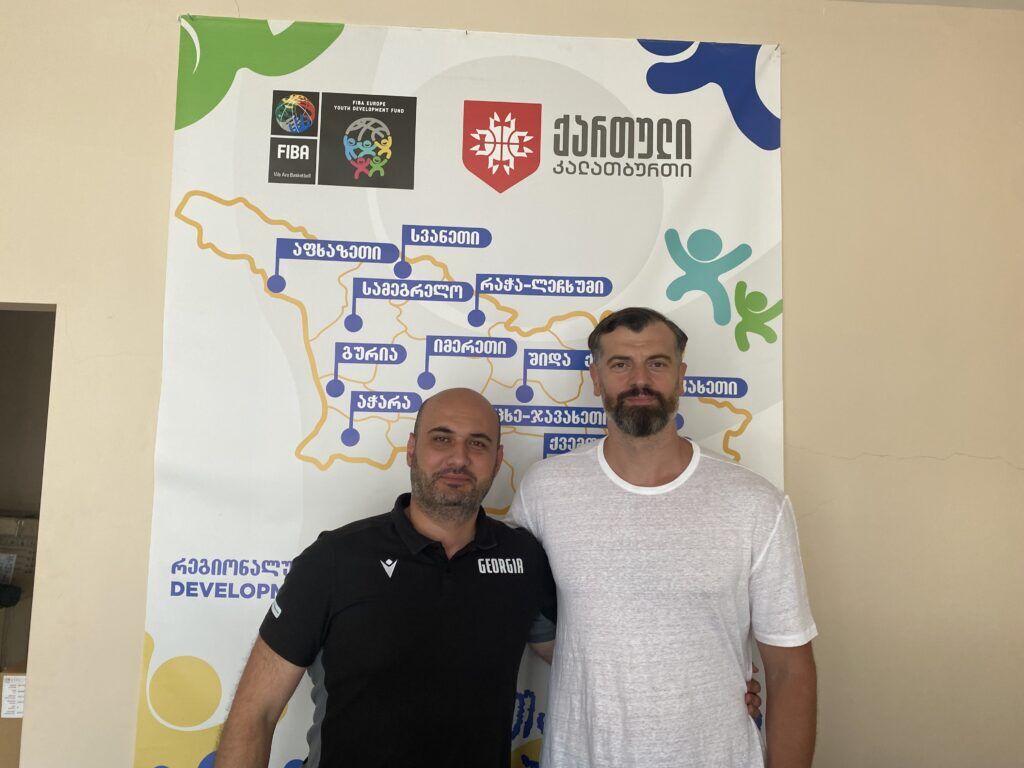
Tskitishvili said the NBA is much different now, with teams helping arrange for young players, including those from overseas, to get more guidance. VanDeWeghe agrees that when Tskitishvili was drafted “it was more difficult” with it being “sort of the beginning” of international players entering the league.
Tskitishvili does regret having gone public about wanting to be traded.
“I should have been a good boy and not crying to let me go,” Tskitishvili said. “I have good memories of Denver. When I think about the United States, the first thing that comes up to is Denver. … And I still cheer for the Nuggets.”
After leaving the Nuggets, Tskitishvili continued to have little success in the NBA. He barely played with the Warriors to finish out 2004-05 and it ended up being the same while splitting 2005-06 with Minnesota and Phoenix.
His Suns tenure was especially disappointing since the coach who didn’t play him was D’Antoni, who previously had him at Benetton. Tskitishvili’s final NBA appearance was playing one scoreless minute during garbage time in Phoenix’s 106-86 rout of Dallas in a May 30, 2006, playoff game.
“I look back at the four years in the NBA as frozen years of my career like I’m in shock because I’m not getting better,’’ Tskitishvili said. “But expectations were so high at being the fifth pick that I couldn’t reach them. If I was the No. 30 or 50 pick, maybe I could have played for 13 or 14 years and scored like 5 or 6 points a game and people wouldn’t have been expecting more.”
Once Tskitisvhili left the NBA, though, and began his odyssey of playing around the world, he felt more relaxed. After playing in Georgia, Slovenia and Italy prior to joining the NBA, other countries where he later had stints were Spain, Greece, Iran, Lebanon, United Arab Emirates, Japan, Bahrain and China. He was a surprise signing by the Los Angeles Clippers in 2015 but was waived before the start of the season.
Tskitishvili often was a role player after he left the NBA, but he did have some very good moments. He was a star when Mahram Tehran won the Iranian Super League championship in 2012. He averaged 27 points one season for a team in Lebanon.
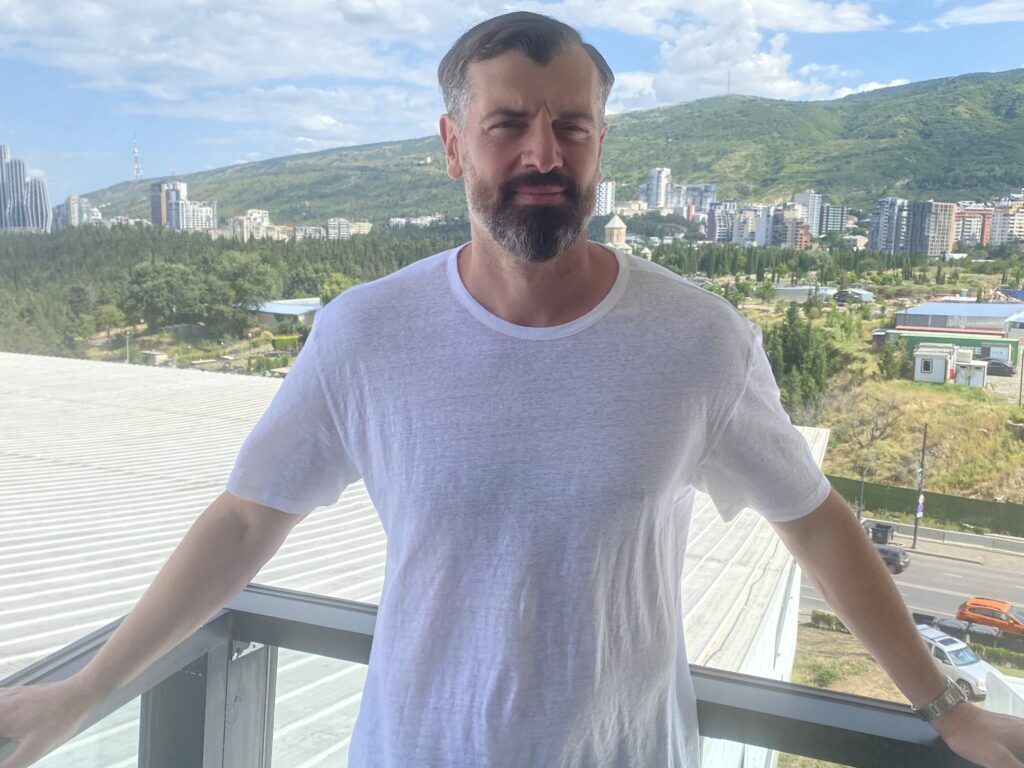
While spending several years in Iran, Tskitishvili’s salary topped out at $100,000 a month, more than triple what he made for some other teams after his time in the NBA. But there were some complications when he left the country for good.
“They’d pay you in U.S. dollars and would bring your money in a suitcase,’’ said Tskitishvili, not permitted to have a bank account in Iran. “I’d never seen so much cash in my life. When I got bored, I’d take the cash out and count it for no reason. But you couldn’t just take that much cash out of the country.”
The U.S. has a law that states any amount over $10,000 must be declared, and other countries have similar rules. Tskitishvili said some players when they left Iran would tape cash to their body, but he didn’t want to do that.
So Tskitishvili hired a man to sneak about $500,000 out of the country and place it in his bank account. He paid $12,000 for the job.
“One week goes by and the money is not in my account and then two weeks go by and it’s nothing,’’ said Tskitishvili, then getting very nervous. “Three weeks go by and the money’s not there. Finally, a call comes in and they say, ‘We got your money.’ Oh, my God, that felt good. I had a career high in points that night (in Lebanon).”
Tskitishvili had stints with three teams in the Beirut area. He said he hardly would go anywhere other than to the gym since bombs at times would be dropped on the city.
Playing in Japan in 2015, Tskitishvili was stopped often on the street due to his size.
“People would see me and they’d scream, ‘Oh, Godzilla,’ and then they’d run away,’’ he said.
Back in Georgia, though, Tskitishvili is greeted warmly. On a recent visit to a local gym, he was surrounded by young basketball players and posed for photos with them.
Tskitishvili then ran into Irakli Pertaia, media officer for the Georgian Basketball Federation. When Tskitishvili played in the NBA, Pertaia would call up articles about him on the internet and translate them into Georgian.
“It was huge news,’’ Pertaia said about when Tskitishvili was drafted by the Nuggets during a time in which the country was struggling with crime, with the economy and having electricity blackouts. “It was sensational. It was big boost to the country.”
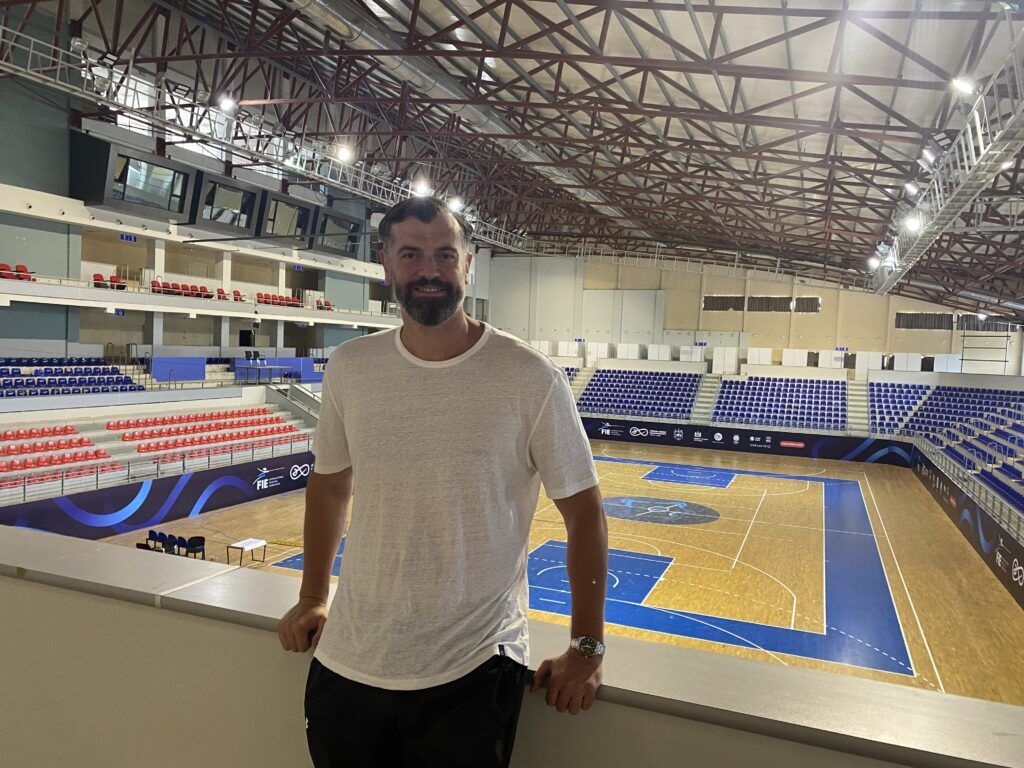
The country is doing much better now. And although Tskitishvili’s NBA career was disappointing, Pertaia said those in Georgia do not regard him as a bust.
“Maybe some experts think that in the USA but we don’t think that,’’ Pertaia said. “Skita is a legend in Georgia.”
Tskitishvili, who sold his Denver home in Cherry Creek in 2007, lives now in a big house on a hill that overlooks the hustle and bustle of Tbilisi. There is a framed picture of him on the wall trying as a rookie to guard Washington star Michael Jordan.
His son has not started to play basketball but is expected to soon. His daughter Eleni excels at tennis and travels to tournaments throughout the country.
Tskitishvili met Sofi on social media in 2009 and they were married in 2010. She admits not knowing he played basketball until doing a Google search but now knows well about his passion for the game.
“I think he has to play until he can’t anymore because basketball is the No. 1 thing for him,’’ she said with a laugh about her husband continuing to play. “The first thing he thinks about is basketball.”
Tskitishvili does have some side interests. His wife operates a company that makes dresses, and the business is being expanded for workers to also produce different types of clothing. The two have started a company called “Comfy by 22” with future plans to sell hoodies, shirts, shorts and pants.
Tskitishvili owns vineyards and has gotten into the production of wine. He calls it Niko’s Winery, using a nickname he has in Georgia.
“I sent a bottle to a few guys like Tony Parker and Francisco Elson,’’ referring to Parker, a native of France and a Hall of Fame point guard, and Elson, a native of the Netherlands and a former Nuggets forward. “They liked it. I hope to get it in stores next year.”
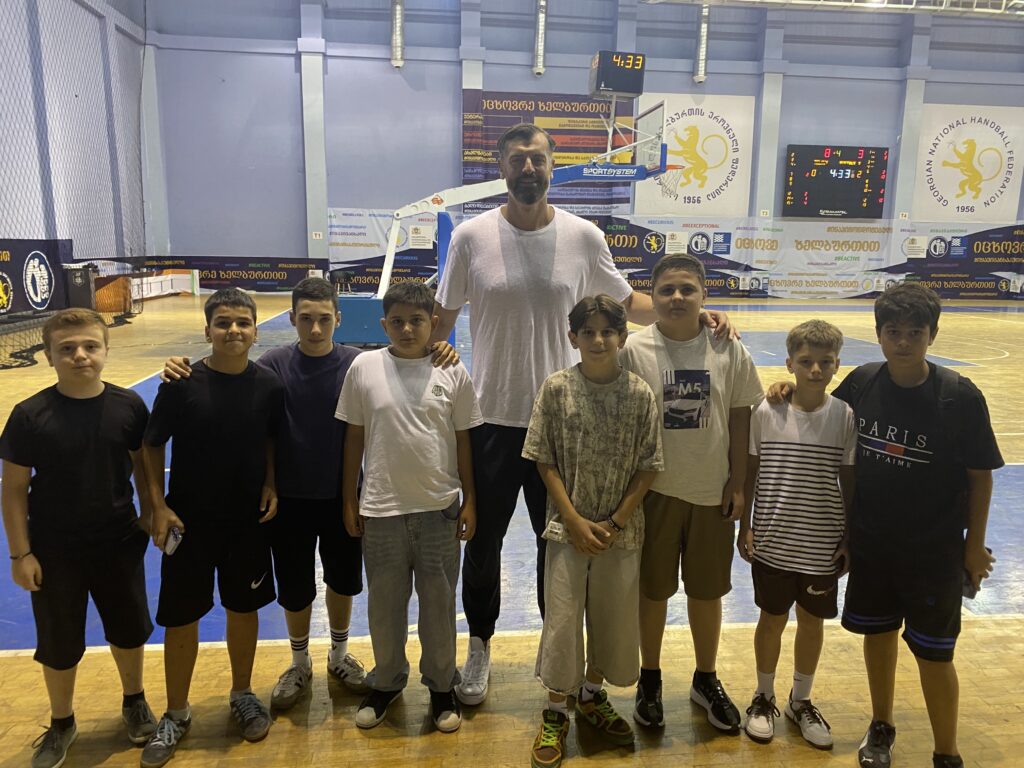
Tskitishvili also serves as an NBA ambassador in Europe, a position which includes traveling around to give motivational speeches. And he is always willing to help aspiring players in Georgia.
“I wish I had somebody like me to help me when I was young,’’ Tskitishvili said. “I would be the perfect example to guide these people to the NBA to not make the same mistakes I made. So if there’s another Tskitishvili out there, I’m going to help them any way I can with my knowledge and everything.”
Tskitishvili would not be hard to find. He not only tools around Tbilisi in his Ford Raptor, he has a still-sparkling 20-year-old Mercedes S-Class he once bought in Denver. It has a vanity plate that reads “SK-111-TA” for his Skita nickname.
